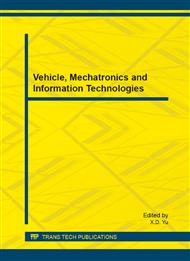p.2439
p.2443
p.2447
p.2451
p.2455
p.2459
p.2464
p.2468
p.2472
Research on Business Website Development Joining Innovative Ability
Abstract:
Innovative ability is the important content of higher vocational education. The cultivation of practice and innovation ability of college students is not only confined to a single practice ability, but includes the comprehensive ability cultivating, such as expression, questioning, thinking and so on. Practice has proved that the students comprehensive occupation quality can be improved through the cultivation of students innovation ability. But how to cultivate and improve students innovative ability in business website development teaching is a serious problem for computer teachers. Starting from the reality of business website development teaching in higher vocational college, the paper discusses how to efficiently cultivate the current higher vocational students innovative ability and spirits in classroom teaching mode from several aspects, provides new attempts for future development of higher vocational education.
Info:
Periodical:
Pages:
2455-2458
Citation:
Online since:
August 2013
Authors:
Price:
Сopyright:
© 2013 Trans Tech Publications Ltd. All Rights Reserved
Share:
Citation:


